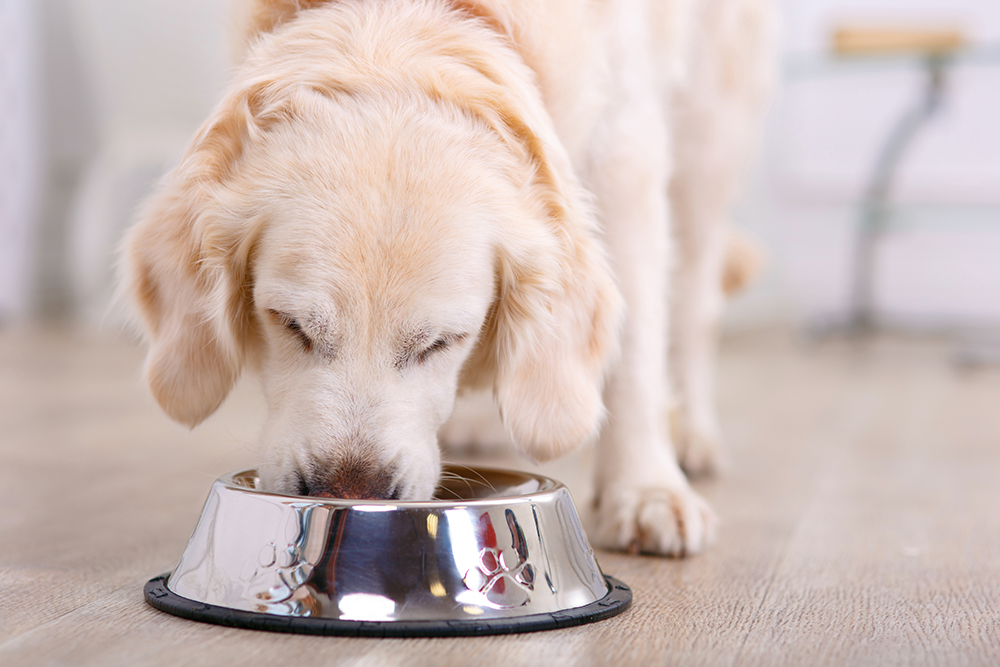Wasabi is thought for its robust, spicy taste and is loved for its highly effective kick. Usually served as a paste, wasabi comes from the underground stem of the wasabi plant (Eutrema japonicum), which is also known as Japanese horseradish for its related style profile. Many Japanese eating places and takeaways within the West use horseradish paste and inexperienced meals coloring to duplicate real wasabi.
Though it isn’t poisonous to canines, Wasabi may be very spicy and it may possibly trigger discomfort and ache to your canine’s mouth and abdomen. It will possibly additionally trigger vomiting and diarrhea. In case your canine has consumed a small quantity of wasabi out of your plate, it’s unlikely to trigger main sickness, however it may possibly trigger your canine to try to do away with the flavour and the results and it might result in sneezing, rubbing of the face, and even hyperactivity.
Most canines dislike the style and the results of the spicy condiment, and they’re going to attempt their finest to keep away from it. Nevertheless, even when your canine doesn’t thoughts the feeling and taste, you need to keep away from feeding it. There are more healthy and safer options to provide your four-legged buddy.


Why Can’t Canines Eat Wasabi?
Wasabi is liked for its robust taste. It delivers a ferocious degree of warmth, though it does dissipate extra shortly than the warmth of a sizzling chili. It has a really related style and impact to horseradish, which has earned it the nickname of Japanese horseradish which explains that quite a lot of eating places exterior Japan use horseradish and inexperienced meals coloring to create a similar-tasting paste.
Nevertheless, the identical warmth that makes it well-liked with people can also be what makes it unsuitable for canines. Happily, most pets will flip their noses up at wasabi as a result of they dislike the robust taste. However, this isn’t all the time the case. Everyone knows canines that may eat something or that may examine any potential meals by chewing it first earlier than in the end regretting the choice.
Wasabi is just not poisonous to canines, so it shouldn’t trigger any long-lasting harm if yours has eaten a small piece of the unprepared plant or licked among the paste off your plate. Nevertheless, it is extremely spicy so that you shouldn’t feed wasabi to canines in any quantity. What’s extra, wasabi paste or different wasabi merchandise can include further flavors and substances which are additionally dangerous to canines.


Risks of Feeding Wasabi to Canines
Though wasabi isn’t poisonous to canines, it may possibly trigger some well being issues, particularly in case your canine has managed to devour quite a lot of it, relying on the kind of wasabi product eaten.
- Irritation – Most often, canines will lick or eat a really small quantity of wasabi earlier than deciding they aren’t eager on the spicy condiment. Even a small quantity could cause appreciable discomfort, which is able to result in your canine drooling, licking and even scratching round their nostril. The warmth of the wasabi may additionally trigger a canine’s eyes to run, so search for indicators of discomfort particularly across the mouth, nostril, and eyes.
- Upset Abdomen – Wasabi causes gastrointestinal irritation which might result in indicators of gastroenteritis resembling acid reflux disorder, vomiting, and diarrhea. In extreme instances, canines might be off their meals or turn out to be dehydrated due to the results of wasabi.
- Components – Pure wasabi is just not poisonous, however not often do we’ve pure wasabi at dwelling. Usually, wasabi paste and different wasabi-based condiments include different substances. These substances can embrace garlic and onion, that are poisonous to canines and might be damaging if fed in too massive portions. In case your canine has managed to eat a complete tube of commercially purchased wasabi paste, examine the ingredient listing to make sure that a spicy mouth is the most important potential downside they’re dealing with.
- Glucosinolates – Glucosinolates are compounds fashioned in vegetation just like the wasabi plant, and are launched as airborne isothiocyanate. There may be one case of wasabi ingestion resulting in collapse in a human which was nicknamed “sushi syncope” It was probably associated to those compounds nevertheless, there’s minimal proof.


What to Do If Your Canine Eats Wasabi
One of the best plan of action, in case your canine has eaten wasabi, is determined by how a lot they’ve eaten, in addition to the kind of wasabi product consumed.


1. Examine Elements
The very first thing to do is examine the ingredient listing of the wasabi product your canine has eaten. If it was pure wasabi, it isn’t poisonous. Nevertheless, search for further substances together with garlic and onion powder.
There could also be poisonous xylitol in that ingredient listing. Wasabi may trigger discomfort, however some further substances generally is a lot worse.
2. Don’t Panic
No matter your canine has eaten, that you must keep calm. Whether it is simply wasabi, the drool, and the irritation will go. You have to to talk to a vet and calmly present as a lot data as doable whereas following the directions and steerage they provide.
3. Present Water
In case your canine has eaten wasabi, attempt offering water. They’ll drool rather a lot, and it will trigger them to lose hydration. If additionally they vomit or have diarrhea, it will trigger additional hydration loss. And, the warmth of the wasabi can irritate the esophagus and throat.
Water will assist calm the burning sensation and it’ll additionally assist guarantee your canine stays effectively hydrated.


4. Monitor Them
Monitor your canine, particularly searching for indicators of gastrointestinal upset. It will possibly take a while to work via your canine. In case your canine has any vomiting or diarrhea they are going to require veterinary consideration.
5. Seek the advice of a Vet
In case your canine has eaten quite a lot of wasabi, one thing poisonous, if they’ve a extreme response to wasabi, or in the event that they endure episodes of vomiting or diarrhea, contact a vet immediately. They’ll need to know what your canine has eaten, in addition to the results it has had in your canine.
They could advocate motion you possibly can take at dwelling, or they might must see your canine.


Can Canines Eat Sushi?
Wasabi is a standard addition to sushi, which is a mixture of seaweed, rice, and greens. Some sushi additionally comprises uncooked fish. Completely different sushi dishes include completely different substances, a few of that are completely protected for canines. Others ought to solely be fed in small quantities and solely sometimes, and a few ought to be averted altogether.
Tempura batter is excessive in fats, doubtlessly resulting in abdomen upset or even pancreatitis. Take into account the person substances earlier than feeding any sushi to your canine.
Can Canines Eat Uncooked Fish?
A standard ingredient in sushi is uncooked fish. Even sashimi-grade fish can carry micro organism which are dangerous to canines, so you need to keep away from feeding any sushi that comprises these uncooked substances.
Can Canines Eat Ginger?
Ginger is protected for canines. It may be fed recent, however sushi sometimes comprises pickled ginger which is acidic and comprises added salt/sugar, making it an unhealthy choice for canines, doubtlessly additionally resulting in a abdomen upset.


Can Canines Eat Rice?
Rice is often present in business canine meals and vets usually advise that it’s fed to sick canines as a result of it’s bland and delicate. It’s simple to digest and has low ranges of fiber. Subsequently, the rice is protected for canines to devour. Nevertheless, care must be taken if the rice comprises different doubtlessly dangerous substances and components.
Can Canines Eat Seaweed?
Though not as widespread, seaweed is one other ingredient that’s present in some business canine meals. Make sure that the seaweed sheets, that are additionally generally utilized in sushi dishes, don’t include further salt or sugar, earlier than feeding to your canine, nevertheless.
And, seaweed might be naturally salty, so make sure that your canine has entry to recent ingesting water and that you simply don’t feed an excessive amount of seaweed in a single sitting to keep away from inflicting dehydration.


Conclusion
Wasabi is an ingredient generally discovered as an accompaniment to sushi and in a variety of different Japanese dishes. It’s ferociously spicy, which is why it divides opinions amongst individuals and is among the causes you shouldn’t feed this to your canine. Business wasabi paste, and different wasabi merchandise, generally include further substances which may be poisonous or harmful to canines as effectively.
Whereas your canine ought to be okay after consuming a small quantity of wasabi, as a result of it isn’t poisonous, they could endure some discomfort and will even endure some vomiting and diarrhea as a result of irritating nature of the ingredient.
Featured Picture Credit score: Narsil, Shutterstock
